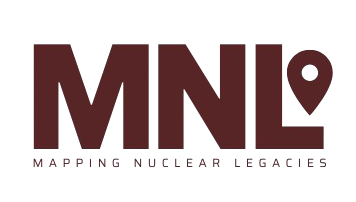Table of Contents
- Introduction
- News, and Other Relevant Links
- Related Organizations and Resources
- Media & Historical Archives
- Featured Resolutions
Portland, Oregon has been a strong advocate against nuclear weapons, with its leaders focusing on redirecting funds from nuclear armament to essential public services.
On November 13, 2019, the Portland City Council passed a resolution supporting the Treaty on the Prohibition of Nuclear Weapons (TPNW). The resolution highlighted the racial and environmental injustices caused by nuclear weapons, including the harmful impacts of uranium mining on Indigenous lands in the Pacific Northwest affecting human health and contaminating the environment, nuclear testing in the Marshall Islands, and radioactive contamination of the Columbia River and its connected waterways caused by the historic plutonium reactors at the Hanford Site in Washington. Key advocates for the resolution included members of Oregon Physicians for Social Responsibility and Veterans for Peace, who emphasized the long-term health effects of radiation exposure and the environmental dangers posed by nuclear sites like Hanford. Oregon’s Senate Joint Memorial 5, a resolution passed by the Oregon State Legislature in 2019, laid the groundwork for Portland’s resolution by outlining the state’s stance on nuclear disarmament. Portland’s commitment to nuclear disarmament is further demonstrated by its long-standing involvement with Mayors for Peace, which it has been a member of since January 1988. Additionally, the arrival of the Golden Rule boat in Portland highlights the city’s rich history of activism in the United States. Originally sailed in 1958 by anti-nuclear weapons activists into Enewetok Atoll in the Marshall Islands to protest nuclear testing, the Golden Rule remains operational and continues to travel across the country, advocating for nuclear abolition with the backing of Veterans for Peace members. Oregon is also home to one of the largest communities of Marshallese people in the United States — the Marshall Islands was the site of 67 nuclear detonation tests between 1946 and 1958, during the early Cold War.
News, and Other Relevant Links
Portland City Council Passes Resolutions Supporting Nuclear Ban Treaty & Diplomacy with Iran
Oregon Physicians for Social Responsibility (2019)
Veterans for Peace Brings Historic Anti-Nuclear Weapons Boat to Portland
KOIN 6 (2024)
Related Organizations and Resources
Media & Historical Archives
Portland City Council PM Session
November 13th, 2019
The council meeting discussed Resolution 37457 and featured public comments and testimony from key speakers advocating for nuclear disarmament. Passed unanimously in tandem with Resolution 37458 “Urge the U.S. Government to engage in diplomacy with Iran,” this decision by the city council members reflects Portland’s commitment to redirecting funds from nuclear weapons to healthcare, education, infrastructure, and the environment.
(1:40:30) Chisao Hata of Oregon Physicians for Social Responsibility spoke on behalf of the organization, emphasizing the historical context of nuclear disarmament efforts and the dangers of nuclear weapons. She highlighted the Nobel Peace Prize awarded to the International Campaign to Abolish Nuclear Weapons (ICAN) in 2017 and stressed the importance of education, health, and climate justice in the fight against nuclear armament. Hata mentioned Portland’s historical involvement as a Mayors for Peace city since 1988 and noted the Pacific Northwest’s direct link to nuclear weapons manufacturing, particularly referencing the plutonium production at the Hanford Site. She urged support for nuclear disarmament to protect future generations and the environment.
(1:44:50) Michiko Kornhauser shared her personal experiences as a child during World War II in Japan, including the firebombing of Tokyo and the atomic bombings of Hiroshima and Nagasaki. She recounted the devastating impact of these events on her family and community, including the death of her baby brother from starvation and her brother’s death from radiation sickness. Kornhauser emphasized the long-term health effects of radiation exposure and the importance of working together for a future without nuclear weapons. She drew parallels between the past and recent disasters, like the nuclear accident at Fukushima, to illustrate the ongoing dangers of nuclear energy and weapons.
(1:50:00) Tawna Sanchez, State Representative for House District 43, North & Northwest Portland, spoke in support of Senate Joint Memorial 5, highlighting the known dangers of nuclear energy and the risks posed by the Hanford Site. She expressed concerns about the environmental and health impacts of nuclear materials, especially given Hanford’s proximity to the Columbia River. Sanchez emphasized the need for immediate action to address these dangers and protect public health and the environment.
(1:51:25) Harvey Thorstad is a retired US Navy Commander and member of Veterans for Peace and the National Association of Atomic Veterans. He supported the resolution, drawing on his personal experience witnessing nuclear tests at Christmas Island in the Indian Ocean. Thorstad recounted the health issues he suffered from radiation exposure, including thyroid problems, and emphasized the unpredictable and catastrophic nature of nuclear weapons. Thurston advocated for diplomacy over war, underscoring the mission of Veterans for Peace to abolish nuclear weapons and prevent future conflicts.
(1:56:10) Kianna Angelo, a Marshallese Islander and the founder of Living Islands, highlighted the devastating legacy of US nuclear testing in the Marshall Islands, detailing the severe health issues faced by the Marshallese people, including cancers and heart problems. She recounted personal stories of loss and displacement caused by the nuclear tests and called for better allocation of resources from funding our nuclear arsenal to instead addressing issues like healthcare, education, and homelessness. Angelo emphasized the need to recognize and prevent the repetition of such historical injustices.
(2:03:31) Yukiyo Kawano, an advisory board member of Oregon Physicians for Social Responsibility and descendant of hibakusha (atomic bomb survivors), shared the personal impact nuclear weapons have had on her family, with multiple relatives suffering from cancer due to radiation exposure. As an artist and educator, she uses her work to explore the narratives of nuclear war and its consequences. Kawano criticized the cultural normalization of nuclear weapons, as seen in local schools using nuclear imagery as mascots, and stressed the importance of critical education regarding the historic use of nuclear weapons by our country. She urged support for the Treaty on the Prohibition of Nuclear Weapons (TPNW) to prevent future nuclear catastrophes.
(2:07:28) Dan Handelman of Peace and Justice Works and Portland Copwatch supported the resolution, drawing connections between local peace efforts and broader global issues. He emphasized the need for diplomacy and peaceful conflict resolution, aligning with the goals of Peace and Justice Works to advocate for social justice and non-violence.
(2:17:49) Ned Rosch highlighted the personal and global stakes of nuclear disarmament, drawing on his experiences and those of his family. He emphasized the urgent need for action to prevent future nuclear wars and advocated for the resolution as a crucial step in the global movement for peace and security.
The resolution was adopted.
Vote Breakdown:
Aye: Chloe Eudaly, Amanda Fritz, Ted Wheeler
Nay: None
Public comment in this video was combined with that for another resolution supporting diplomacy with Iran.
Featured Resolutions
RESOLUTIONS
Resolution 37457: Declare opposition to nuclear weapons and urge the U.S. Government to sign the Treaty on the Prohibition of Nuclear Weapons resolution
November 13, 2019
Resolution 37457 expresses the City of Portland’s strong opposition to nuclear weapons and calls on the federal government to sign the Treaty on the Prohibition of Nuclear Weapons (TPNW). This resolution uniquely emphasizes the experiences and voices of Indigenous communities, community members and local advocates, such as Hiroshima survivors Dr. Hideko Tamura Snider and Michiko Kornhouser, Hanford Site cleanup advocate Russell Jim, and notable figures like Carol Urner, who organized the first Hiroshima and Nagasaki memorial in Portland in 1962, and Ava Helen Pauling.
The resolution outlines the substantial financial burden nuclear weapons put on Oregon taxpayers, estimated at $142,412,948 in 2019, and addresses the historical impact of nuclear testing at sites like Hanford and the Marshall Islands. It argues that funding currently allocated to nuclear weapons should instead support climate justice initiatives, highlighting how nuclear weapons use and development has disproportionately affected women, children, and communities of color. The resolution points out the proximity of Portland to the Hanford Site, where plutonium was produced for the bomb dropped on Nagasaki and contamination from which has displaced residents, harmed the health of Downwinders in Oregon and Washington, and destroyed sacred sites, villages and fishing areas important to Native American tribes. It emphasizes the inadequate compensation provided for the health and environmental repercussions these communities have faced due to nuclear activities. The resolution also stresses the significance of past arms control treaties, such as the NPT, START, and INF, and acknowledges the benefits they have brought to Portland residents.
Furthermore, it recognizes Oregon’s Congressional Delegation — Senators Jeff Merkley and Ron Wyden, along with Representatives Earl Blumenauer, Peter DeFazio, and Suzanne Bonamici — as leaders in nuclear disarmament advocacy. The resolution also aligns with Oregon’s Senate Joint Memorial 5, passed in 2019, which supports similar anti-nuclear initiatives.
The City Council of Portland urges the U.S. Congress to implement measures that prevent nuclear war by limiting the President’s unchecked authority to launch nuclear weapons and renouncing the first-use policy. The resolution calls for the removal of nuclear weapons from hair-trigger alert, the cancellation of plans to replace the U.S. nuclear arsenal, and the pursuit of multilateral agreements for nuclear disarmament. Additionally, it states Portland’s support for the TPNW and authorizes the city’s participation in the International Campaign to Abolish Nuclear Weapons (ICAN) to advance global nuclear disarmament efforts. Notably, this resolution includes hyperlinks to various resources and statistics, a modern approach that contributes to this resolution’s uniqueness.
Senate Joint Memorial 5 (SJM 5) was a resolution passed in 2019 by the Oregon State Legislature urging the U.S. government to lead global efforts in reducing nuclear weapons and to work towards complete nuclear disarmament. The memorial called on the federal government to embrace the principles of the United Nations Treaty on the Prohibition of Nuclear Weapons (TPNW), signaling Oregon’s commitment to advocating for a world free from nuclear threats. This resolution aligns with broader disarmament efforts, reflecting Oregon’s historic and ongoing concern for the environmental, health, and social impacts of nuclear weapons, especially in communities that have been uniquely affected by nuclear testing and waste disposal.

